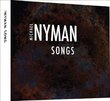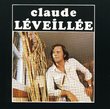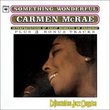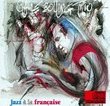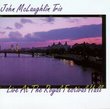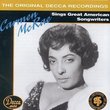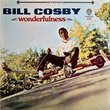| All Artists: Arnold Schoenberg, Paul Jacobs Title: Arnold Schoenberg: Piano Music Members Wishing: 1 Total Copies: 0 Label: Nonesuch Release Date: 5/7/1992 Genre: Classical Styles: Forms & Genres, Suites Number of Discs: 1 SwapaCD Credits: 1 UPCs: 075597130928, 075597130928 |
Search - Arnold Schoenberg, Paul Jacobs :: Arnold Schoenberg: Piano Music
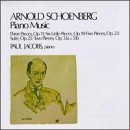 | Arnold Schoenberg, Paul Jacobs Arnold Schoenberg: Piano Music Genre: Classical
|
Larger Image |
CD DetailsSimilar CDsSimilarly Requested CDs
|
CD ReviewsHello lovely dissonance... ewomack | MN USA | 06/05/2005 (5 out of 5 stars) "Schoenberg revolutionized the post-Wagner musical world. He shaped twentieth century music unindelibly regardless of the less than favorable remarks sometimes thrown his way (such as "ugly music" and "unlistenable"). He gave modern music something completely new to contend with. Of course the use of dissonance didn't originate with Schoenberg's music. But the way he used it marked it as unique. Previous to Schoenberg, dissonance gave composers a way to achieve even greater harmonic resolution. Schoenberg turned this idea on its head and made dissonance and irresolution the signposts of his atonal works. Tonality was no longer the goal of dissonance, dissonance itself along with an opening of the musical vocabulary became the goal. Though Schoenberg wrote very few solo piano works, nearly all of them contain seeds for the innovations that his music would bring to the twentieth century musical landscape. This incredible solo piano CD showcases the most important pieces. The first piece on the disc, "Three Piano Pieces, Op. 11", is now considered one of the pivotal works of the twentieth century. Schoenberg himself saw a definite moving forward of his style in this piece (along with his Op. 14). In 1908 there wasn't anything else really like it. Of course it met with hostile reception (like many of Schoenberg's works had and would). But it also opened up new possibilties and emotional expressions for music in general. Schoenberg's great discovery was that dissonance and the unresolved can carry definite emotive meaning and feeling. Of course almost a hundred years later we now know this. But Paul Jacobs' interpretations of the works on this disc make this fully and completely evident. The other works here continue and develop the revolution that "Three Piano Pieces, Op.11" began. 1911's "Six Little Piano Pieces, Op. 19" is exactly that: six diminutive pieces (all under a minute and a half in length) labeled by their respective tempos. Jacobs points out in his liner notes that Schoenberg composed the sixth piece of this series after news of Gustav Mahler's death reached him in 1911. In the final piece of "Five Piano Pieces, Op.23" ("Walzer", track 16), Schoenberg completely utilizes his twelve tone system of composition. The "Suite for Piano, Op.25" showcases this style throughout the entirety of the music. The two piano pieces (Op. 33a and Op. 33b) demonstrate how far Schoenberg had developed his serial twelve tone system by the 1930s. Every work on this disc represents an important musical event in the life of Schoenberg. The playing here is nothing short of amazing. The crisp sound and evenly engineered recording allow the listener to hear every note clearly. A mood emerges from the music here, one that may be unfamiliar for newcomers to Schoenberg's music. This mood manifests Schoenberg's musical innovations and points forward. This disc provides an ideal introduction to the music of Schoenberg for nearly anyone. Not only that, those already familiar with the works will also find much to chew on. That is because this disc represents more than a great interpretation of Schoenberg, it's also a great piano disc with incredible performances. It demonstrates that there's far more to the music of Schoenberg than mere intellectualism." Most faithful Schoenberg Piano Recording I know S. C Rice | 07/28/2004 (5 out of 5 stars) "I've listened to a lot of Schoenberg's piano music on recording. IMHO, Paul Jacobs is the most faithful recording I have heard to the spirit of this music. I enjoy other recordings of these pieces, Gould, Pollini, Uchida, but I also find that these inject a lot of sensibilities foreign to these pieces into the performance; for example Gould is playing with tempi, Pollini is being pointedly modern in articulation using fairly rigid (and fast) tempi. So, if you haven't heard other Schoenberg piano recordings before, what do I mean? Jacobs is flexible with his tempi, things slow down and speed up a lot (often this is prescribed in the score and taken with a grain of salt by the performers), there is a lot of attention to polyphony in the music. Musically, this is one of the most consistent recordings I've heard- often performers don't know what to do with a section and they just gloss over it, but it seems like Jacobs has taken care to sort out all the minutia. For example, the intermezzo of the suite makes sense in this performance (it often doesn't in other performances), the same of the opus 33a. Jacobs' closeness to this music makes sense; he studied with Steuermann, for whom the 2nd (to none) Viennese often wrote and one who knew them well. " My favorite CD of Schoenberg! Matthew D Kerr | Princeton, NJ United States | 07/19/2002 (5 out of 5 stars) "Here's some serial music that both (a) communicates quite clearly and (b) doesn't sound sick. o.k., so Berg's music communicates brilliantly and is extraordinarily moving but suffers from sounding like really sickening post-Romantic music taken one step further, while Webern's sounds more objective but fail to communicate anything to me. The majority of Schoenberg's compositions sound to me like an abstracted, dry post-Romanticism. On the other hand, the Op. 25 piano suite played here (in a performance superior to that other one by Maurizio Pollini), presents itself as neo-Baroque. Without listening to it, one worries it could be like an atonal Reger, but it's not that at all. It's very tight, you can follow its "rhetorical line" just as you would Handel or Bach at their best. I don't personally care as much for the other pieces in this collection, because they lack the tight intelligent expression of Op. 25 (which is actually my favorite serial piece of music), but they are fantastic -- inspired by jazz, or the death of Mahler."
|

 Track Listings (22) - Disc #1
Track Listings (22) - Disc #1
